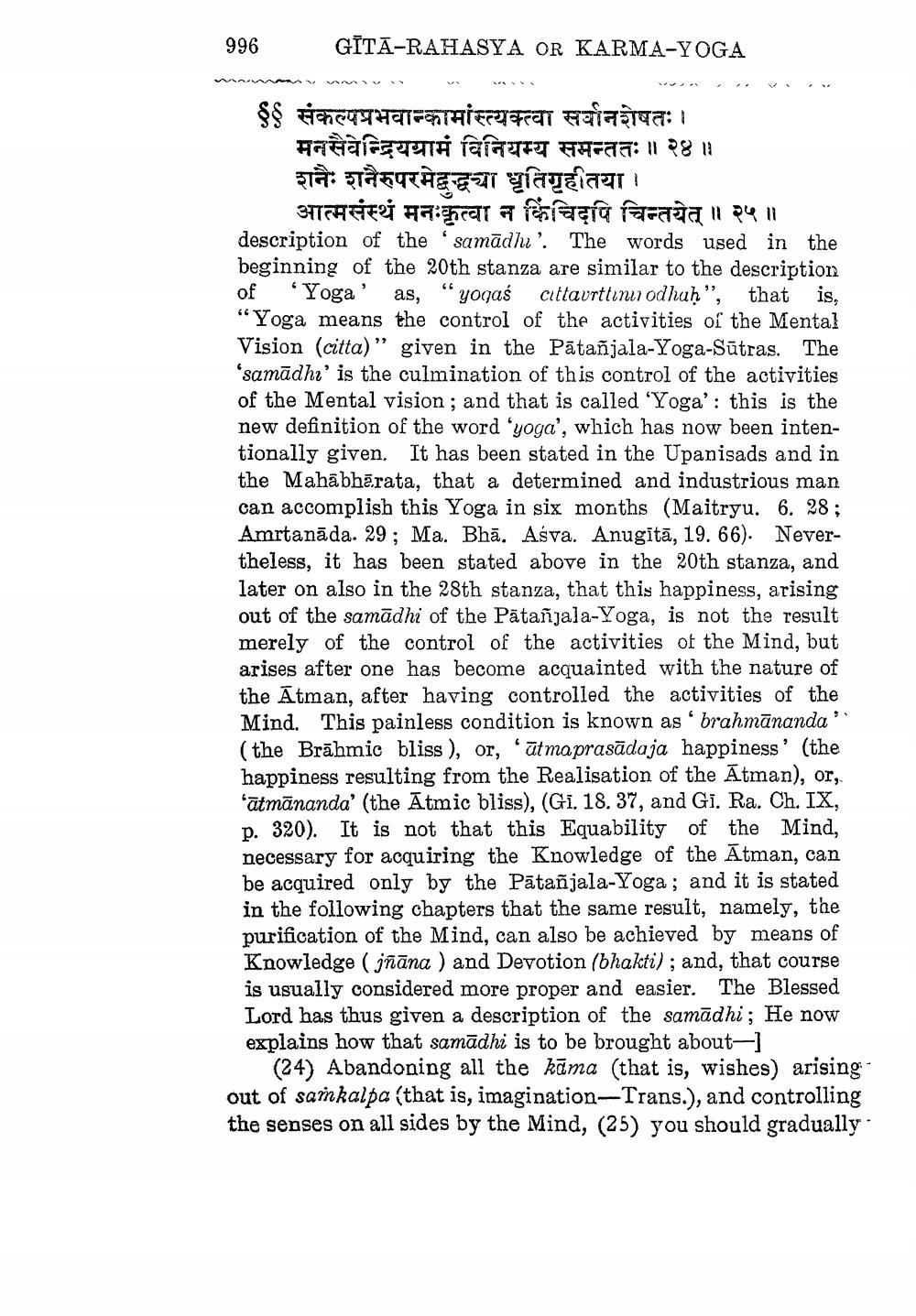________________
996 GĪTĀ-RAHASYA OR KARMA-YOGA wanan mo
na ६ संकल्पप्रभवान्कामांस्त्यक्त्वा सर्वानशेषतः।।
मनसैवेन्द्रियग्रामं विनियम्य समन्ततः॥ २४ ॥ शनैः शनैरुपरमेद्वद्धया धृतिगृहीतया।
आत्मसंस्थं मनःकृत्वा न किंचिदपि चिन्तयेत् ॥ २५ ॥ description of the samādhu'. The words used in the beginning of the 20th stanza are similar to the description of "Yoga' as, “yogaś cittavrttını odhaḥ", that is, “Yoga means the control of the activities of the Mental Vision (citta)” given in the Pātañjala-Yoga-Sūtras. The 'samādhr' is the culmination of this control of the activities of the Mental vision; and that is called 'Yoga': this is the new definition of the word 'yoga', which has now been intentionally given. It has been stated in the Upanisads and in the Mahābhārata, that a determined and industrious man can accomplish this Yoga in six months (Maitryu. 6. 28; Amrtanāda. 29; Ma. Bhā. Aśva. Anugītā, 19. 66). Nevertheless, it has been stated above in the 20th stanza, and later on also in the 28th stanza, that this happiness, arising out of the samādhi of the Pātañjala-Yoga, is not the result merely of the control of the activities of the Mind, but arises after one has become acquainted with the nature of the Atman, after having controlled the activities of the Mind. This painless condition is known as brahmānanda" (the Brāhmic bliss ), or, at maprasādaja happiness' (the happiness resulting from the Realisation of the Ātman), or, 'ātmānanda' (the Ātmic bliss), (Gi. 18. 37, and Gi. Ra. Ch. IX, p. 320). It is not that this Equability of the Mind, necessary for acquiring the Knowledge of the Ātman, can be acquired only by the Pātañjala-Yoga; and it is stated in the following chapters that the same result, namely, the purification of the Mind, can also be achieved by means of Knowledge ( jñāna ) and Devotion (bhakti); and, that course is usually considered more proper and easier. The Blessed Lord has thus given a description of the samādhi; He now explains how that samādhi is to be brought about
(24) Abandoning all the kama (that is, wishes) arising out of samkalpa (that is, imagination-Trans.), and controlling the senses on all sides by the Mind, (25) you should gradually




